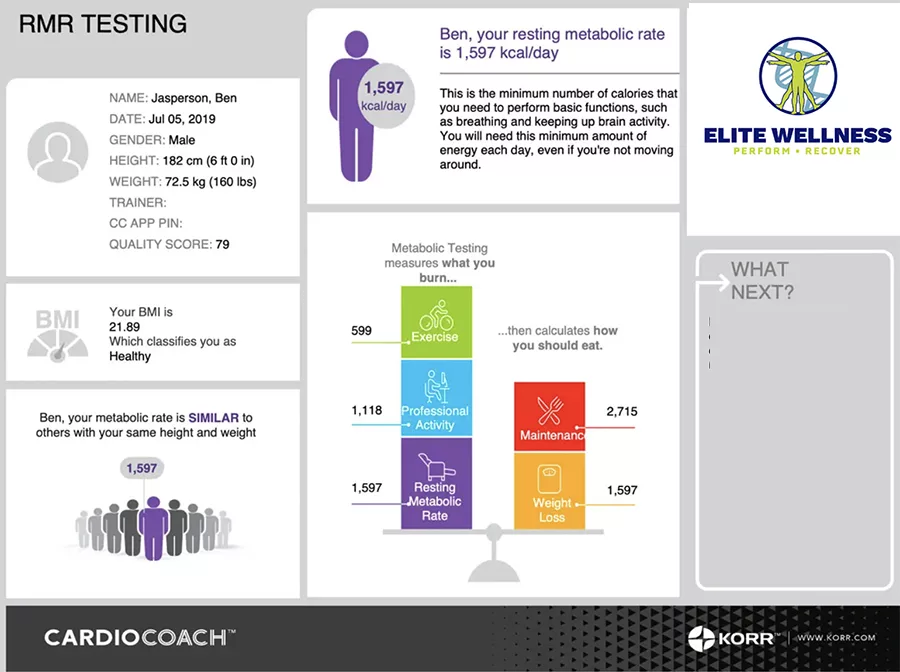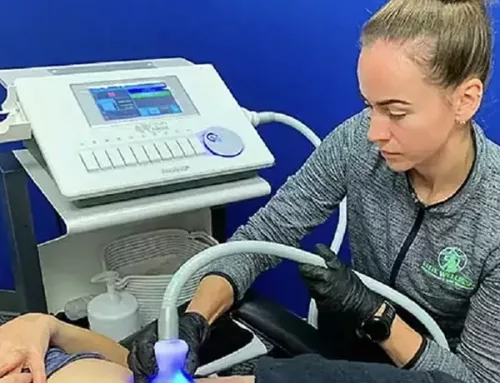Understanding Resting Metabolic Rate Testing and Its Role in Weight Management
Weight management is a multifaceted endeavor, and the key to success lies in comprehending the unique needs of an individual’s metabolism. One such tool we have at Elite Wellness is the Resting Metabolic Rate (RMR) testing. This non-invasive procedure allows us to gain insight into an individual’s baseline metabolic rate, helping them tailor personalized strategies for weight management.
What is Resting Metabolic Rate (RMR) Testing?
 Resting Metabolic Rate (RMR) refers to the number of calories an individual’s body burns at rest to maintain basic physiological functions, such as breathing, circulation, and maintaining body temperature. Even when we are at rest, our body requires a certain amount of energy to sustain itself. RMR testing is a scientific method used to determine this basal metabolic rate accurately.
Resting Metabolic Rate (RMR) refers to the number of calories an individual’s body burns at rest to maintain basic physiological functions, such as breathing, circulation, and maintaining body temperature. Even when we are at rest, our body requires a certain amount of energy to sustain itself. RMR testing is a scientific method used to determine this basal metabolic rate accurately.
RMR testing typically involves analyzing factors such as oxygen consumption, carbon dioxide production, and minute ventilation, often through indirect calorimetry. During the test, a person breathes into a device that measures these gases, allowing for the calculation of their RMR.
The Importance of Resting Metabolic Rate Testing in Weight Management

Sample report.
Embracing this scientific approach to weight management can lead to more successful and sustainable outcomes in the pursuit of a healthy body weight and overall well-being. As always, it is essential to consult with qualified healthcare professionals before embarking on any weight management program.




